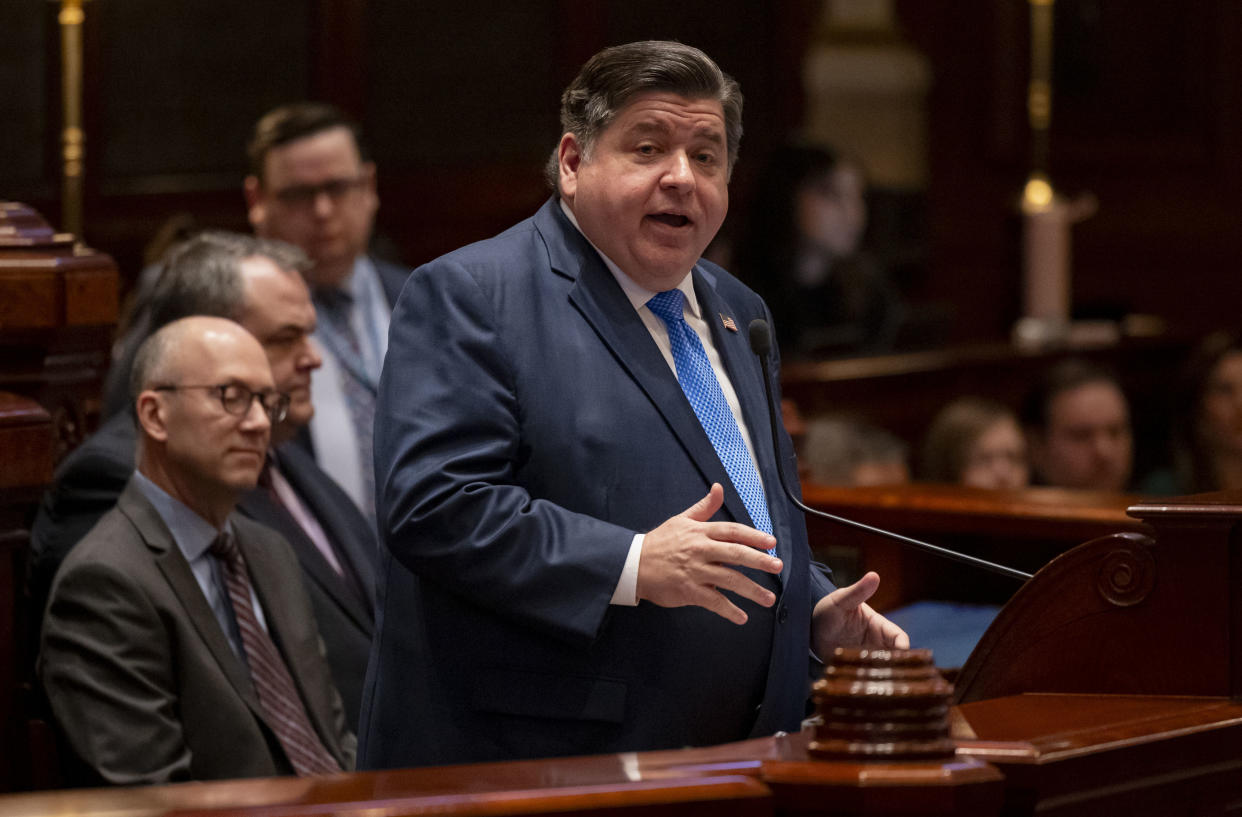Suburban mayors warn that Pritzker’s plan to eliminate grocery sales tax will hurt services or raise other taxes

Several suburban mayors gathered Monday to protest a proposal to eliminate the 1% sales tax on groceries in Illinois, saying it would force reduced services or higher alternative taxes.
The mayors of Algonquin, Barrington, Cary and Libertyville said the tax cut proposed by Gov. J.B. Pritzker would hurt their ability to provide basic services. They say the governor should reconsider, or that the state needs to replace the full 10% that municipalities previously received from the state income tax.
“This is only going to hurt us immensely,” Algonquin Mayor Debby Sosine said.
In his budget address in February, Pritzker proposed raising taxes by almost $900 million, but called for eliminating the 1% grocery tax as a regressive tax that hurts poor people.
Revenue from the tax goes entirely to local governments. The mayors laid out how that would affect their municipalities.
The change would cost retail-rich Algonquin around $2 million, about 10% of its budget, Sosine said, calling it “unacceptable.”
Until January 2011, 10% of total income tax collections was dedicated to municipalities and counties. Since then, that share has been cut, to about 6.5% this fiscal year, the Illinois Municipal League reported.
Libertyville Village President Donna Johnson said the mayors are sensitive to financially strapped residents, but said the cuts affect basic services such as police, fire, public works and roads.
“We want a more balanced approached,” she said. “We need to be heard.”
While the tax amounts to only $1.50 on a $150 grocery bill, it adds up to significant amounts to provide services, about $600,000 in the case of Barrington, Mayor Karen Darch said.
Cary officials are reconsidering their budget in light of the surprise proposal. In a referendum that was planned previously, the city will ask voters in the March 19 election for home rule power to create a new 1% sales tax to pay for infrastructure improvements.
“Municipalities want to work with the state,” Mayor Mark Kownick said. “We’re looking for some sort of relief.”
State Rep. Martin McLaughlin, who organized the news conference, noted that municipalities typically can’t raise their property taxes more than 5% a year and want to be less dependent on property taxes, so the grocery sales tax cut likely would result in service cuts.
“This is not a tax cut,” he said. “It’s a political shell game.”
In anticipation of such criticism, the governor’s office released a statement saying that it supports local government operations with more than $1 billion annually in additional funds from sources including an internet sales tax, gas taxes and transportation bonds.
Pritzker had temporarily eliminated the grocery tax in 2022, which Republicans at the time called an election-year ploy. The governor recently said he would not reconsider his proposal to eliminate the grocery tax, calling it the “most regressive” tax.
“If it reduces inflation for families from 4% to 3%, even if it only puts a few hundred bucks back in families’ pockets, it’s the right thing to do,” he said.
